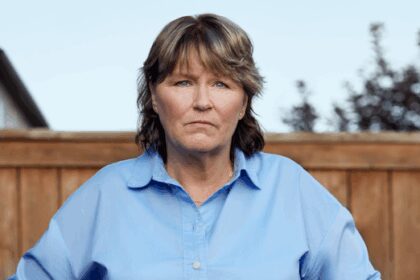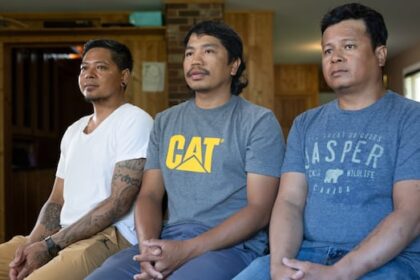Sweeping changes to Bill S-2 that would eliminate the second-generation cutoff from the Indian Act will face a crucial vote in the Senate on Tuesday. If the amendments are approved, they will mark a historic step toward ending decades of gender-based discrimination in First Nations status law—but they also risk delaying the bill’s original goal, resolving a Charter challenge. The federal government introduced Bill S-2 in the Senate to comply with a ruling in Nicholas v. Canada, a B.C. Supreme Court case. In its original form it restored status under the Indian Act to a limited group of 3,000 to 5,000 people affected by historic enfranchisement provisions, including individuals who gave up their status voluntarily to keep their children out of residential schools or to vote in federal and provincial elections. Indigenous Services Canada (ISC) Minister Mandy Gull-Masty has a deadline of April 2026 to fix the law. But after hearing from 57 witnesses, the Senate Standing Committee on Indigenous Peoples amended the bill. Their changes go far beyond the scope of Nicholas, aiming to resolve broader discrimination by ending the second-generation cutoff altogether. The amendments would also eliminate the “unknown paternity” clause, which currently denies status to children of status mothers if the father is unnamed. Mi’kmaq Sen. Paul Prosper, who proposed the amendments, says it’s time to stop treating Indian Act discrimination one lawsuit at a time. “You have situations where a case, you know, deemed certain provisions unconstitutional, uh, discriminatory provisions within the Indian Act, and government sort of defines a very narrow approach to deal with that,” he says in an interview with Nation to Nation. “In essence, they don’t deal with all the discriminatory provisions.” Prosper says the amendments reflect decades of legal and grassroots advocacy. “The appropriate way to deal with it is to deal with all those provisions that are discriminatory once and for all,” he says. But the Gull-Masty disagrees. In a rare move, Gull-Masty returned to committee in November to ask Senators to reject the amendments, warning they could delay passage and expose the government to new litigation. “Trying to predetermine a solution for somebody—for a group—if you do not live with the reality of that issue is racism itself,” she told the Senate when she appeared before them last month. “And I will not uphold that as a minister.” The minister says she is embarking on a consultation process with First Nations, and while that may take longer, she is committed to addressing the second generation cut off in future legislation. She argues that is the right way to go, saying consultation with communities is required to make sweeping changes. Prosper says the Senate’s changes are grounded in extensive testimony and past studies. “There has been significant consultations… all pointing to the need to remove the second generation cutoff.” Tuesday’s vote will determine whether the bill proceeds to a third reading in the Senate with the amendments intact. Even if it does, it faces another round of scrutiny in the House of Commons, where the government could challenge the amendments as being outside the bill’s scope. “There may be technical issues that government may raise as a point of order,” Prosper acknowledges. Michelle First Nation supports Bill S-2, but worries about Senate amendments The Michel Band was once a recognized First Nation in Alberta. It’s made up of Cree and Métis families who signed to Treaty 6. They held reserve land northwest of Edmonton, in and around what is now the Morinville area, just south of the present-day Alexander Reserve. “They were a diverse but cohesive community back then,” says lawyer Troy Chalifoux. “But they’ve been spread out all over the place now.” The land they lived on was valuable—some of the best agricultural land in the west, according to Chalifoux. But Canada failed to provide them with the resources promised under the treaty. “They were forced to purchase a lot of those things and were induced to surrender their lands, to acquire the resources to purchase the very things that the treaty was to provide, and Canada did not, did not provide it,” he says. Then in 1958, the federal government used a provision in the Indian Act to formally dissolve the entire band. Nearly all members were fully enfranchised, meaning they lost their legal Indian status and with it their recognition as a First Nation. “We lost all,” says Beverly Asmann, director of the Michel Callihoo Nation Society. “We had culture, language, home, family. We lost everything due to the government and their ideas.” The decision scattered families, stripped them of identity, and erased the reserve. Today, the community is working to rebuild that identity—tracking down descendants, documenting history, and pressing the federal government to formally recognize them again as a band. Under S-2 they estimate that up to 3000 people who belonged to the Michel band would regain status, and that would be the start of rebuilding their community. “All I’ve ever wanted was to belong,” Asmann says. “I’ve never belonged anywhere.” Representatives of the Michel Band testified before the committee that they would like S-2 passed in its original form, unamended. While they also want to see the second generation cut off ended, they worry these amendments will hold up the bill. Beverly Asmann, director of the Michel Callihoo Nation Society, says the bill matters deeply to her community. “All I’ve ever wanted was to belong. I’ve never belonged anywhere. I’ve been out on different reserves, I’ve worked for different bands, but I never belong anywhere. And I guess it’s just trying to find. Home and to, to gain some culture and to find some family that, um, that we deserve to have,” says Asmann. Chalifoux explains that while the amendments are welcome in principle, their scope could stall the bill. “The problem is that those amendments will impact potentially tens, if not hundreds of thousands of people. So Canada needs to understand that… if they hit pause in order to address the rest of it, well then you’re pursuing perfection at the expense of the good.” What the amendments do The amendments aim to correct a long-standing complaint that many First Nations have raised since 1985. Before then, a First Nations woman with legal status who married a non-status man would lose her status and with it, key rights—such as the right to live on reserve, vote in band elections, or exercise certain treaty rights. The opposite was true for men. If a First Nations man married a non-status woman, she would gain status and the rights that came with it. In 1985, Bill C-31 changed that. It restored status to women who had lost it and granted them what’s known as 6(1) status—meaning they could pass status on to their children. Those children were given 6(2) status, which came with a catch: they could only pass status to their own children if they married another status person. If they didn’t, their children would be legally considered non-status. That’s what’s known as the second-generation cutoff. Since 1985, courts have repeatedly ruled against this system, restoring status to specific groups in a patchwork of legal decisions. Bill S-2 was intended to be another targeted fix—restoring status to between 3,000 and 6,000 people who were enfranchised under now-defunct provisions of the Indian Act. But when the bill reached the Senate, senators introduced four amendments. In essence, they looked back at the 1985 changes and expanded them. Under the amendments, children born after 1985 who currently have 6(2) status would be upgraded to 6(1)—ensuring their children would also inherit status, even if the other parent is non-status. The amendments would also eliminate the unknown paternity clause. Right now, if a status mother does not name the father of her child, that child is presumed to be non-status. Under the changes, those children would be granted status. Continue Reading
Bill S-2 amendments to end discrimination face critical Senate vote Tuesday

Leave a Comment










